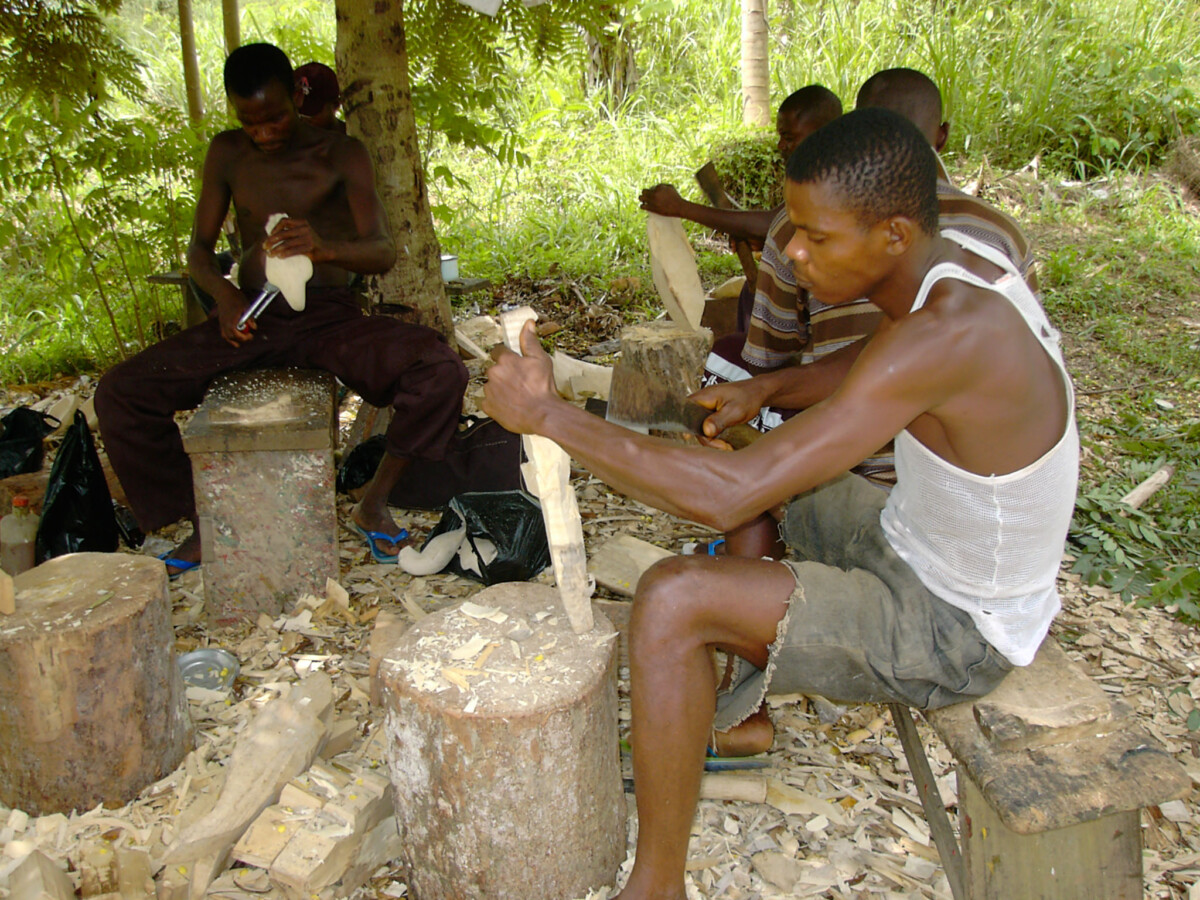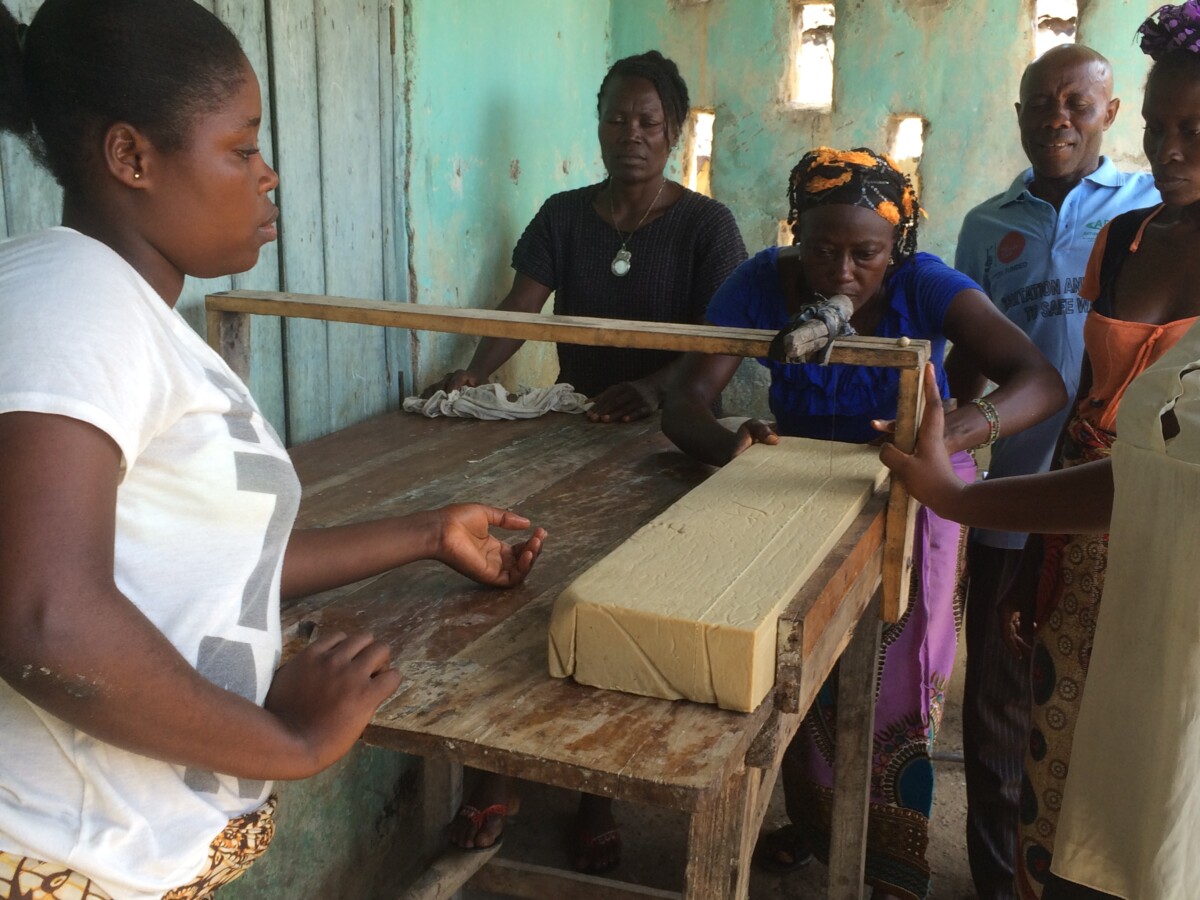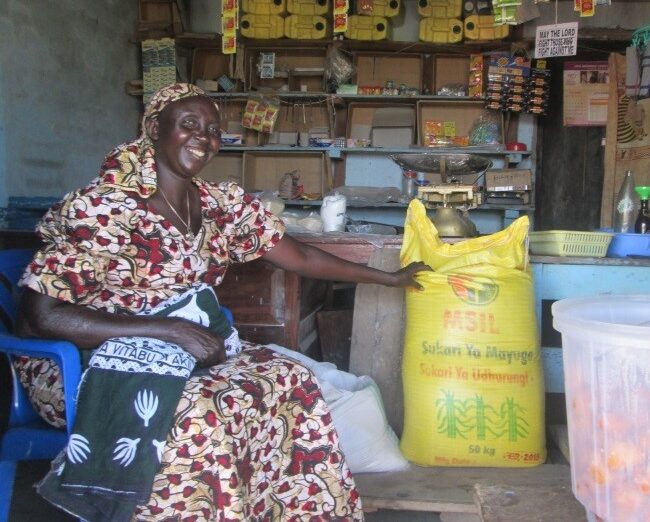Since 1984, we have supported thousands of people across the world to develop sustainable livelihoods.

Action on Poverty was founded in 1984 by three engineers, Rob Hitchings, Jim Tanburn and Michael Walsby. Having spent time in Africa, they had seen for themselves ingenuity and pro-activity with which people living in extreme poverty sought to better their situation and that of their communities, ingenuity which inspired them to do what they could to provide a little help.
They set to work from the back of a garage, designing tools and equipment, such as clamps and metal sheet rollers, which could be used to increase the efficiency of small businesses, whom they also provided with technical expertise. This was the start of our long-term commitment to support people living in poverty to build their self-reliance and develop their livelihoods. Michael was awarded an OBE in 2006 for his work on enterprise development in Africa.Most recently, on 31st December 2024, Jim Tanburn was awarded an OBE for his outstanding contributions to international development.
These achievements celebrate the vision and dedication of our founders and their impact on communities worldwide.
Though our approach has changed, we have maintained our focus and drive to build the self-reliance of vulnerable people.
We have supported thousands of people across the world to develop sustainable livelihoods—in Africa and Asia, as well as parts of Central America and the Middle East. However, over time, our approach has shifted in order to maximise and concentrate our impact. Where we used to support livelihoods through training courses, we now deliver our programmes by building and sustaining long-term partnerships, beginning in Kenya and Uganda in 1992 and now encompassing numerous local organisations in East and West Africa. This means our interventions can be much more sustainable and the experience and knowledge which is built over time remains in the country, rather than being extracted once a programme closes.
We have also deepened our approach. Alongside providing practical support to help people develop sustainable livelihoods, we are now also committed to tackling the root causes of poverty.
We believe this commitment can only be realised by addressing structural inequalities and social justice, whether for women, young people or people with disabilities, is a fundamental component of our work today.






